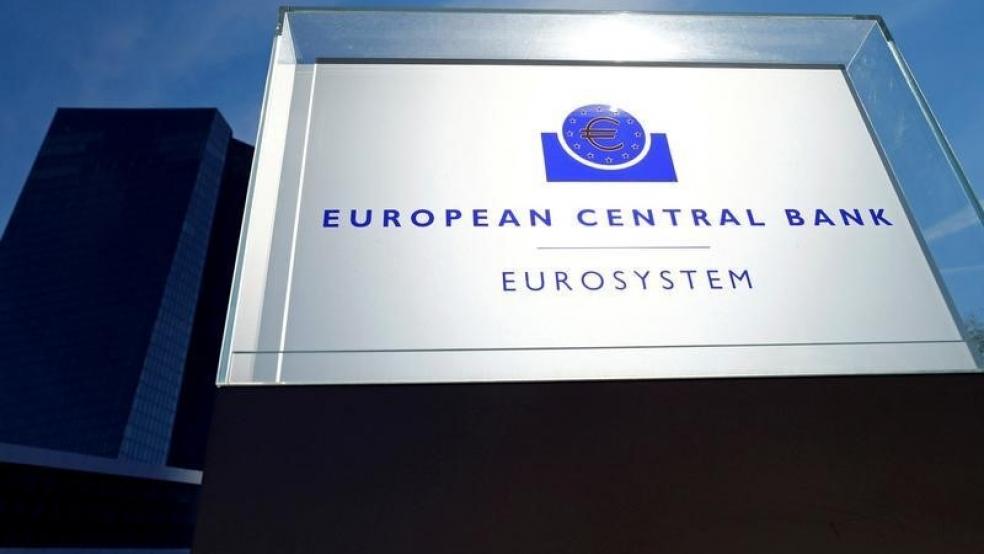FRANKFURT (Reuters) - There is firm support for a deposit rate cut within the European Central Bank's Governing Council but appetite for more radical action is still limited, conversations with policymakers indicate a month before the March rate decision.
With long-term inflation expectations falling, the ECB will probably have to act and frame the rate cut as part of broader a package, with some measures involving changes to the bank's flagship asset-purchase program, policymakers told Reuters.
But with no consensus yet about which further measures to take and Europe's modest economic recovery still broadly on track, some of those spoken to cautioned against radical action.
They noted, however, that their view could still change if recent market turmoil proved lasting, posing a risk to the real economy.
ECB President Mario Draghi has said the bank would review and possibly recalibrate its stance in March to fight persistently low inflation. Markets now price at least two rate cuts, taking the deposit rate to -0.55 percent by the end of the year from -0.3 percent.
"Doing nothing in March is very unlikely," the governor of one of the euro zone's 19 central banks told Reuters. "Monetary conditions have tightened, long term inflation expectations are falling and credibility is at stake.""I think a deposit rate cut is fairly undisputed," the governor added.Fresh economic forecasts, which could also alter the mood, have not yet been finalised and the board has yet presented its proposals to the Governing Council. But based on the current outlook, including the increased market volatility, moving the deposit rate alone does not appear to be enough for some policymakers."The chance of a rate cut is high," said another governor, who spoke on condition of anonymity. "It wouldn't do enough and it would be a mistake to signal that we're relying on conventional policies when we're going to be in the unconventional sphere for years to come." "Quantitative easing is our key policy tool and I think any package needs to have a QE component," the policymaker added.Market volatility since the start of the year has reversed much of the impact of the ECB's December easing, when it cut the deposit rate and extended QE. The euro has firmed over 4 percent against the dollar since the start of the year and euro zone stocks <.stoxxe> are down 16 percent. The nearly 30 percent fall in banking shares <.sx7e> could raise the cost of capital for banks, potentially holding back lending and reducing the effectiveness of quantitative easing.Although Germany has been a staunch opponent of policy easing, even Bundesbank chief Jens Weidmann appears to have softened his stance recently, highlighting the risk to credibility as inflation has undershot the ECB's target for three straight years.POLICY OPTIONSStill, the broader economic outlook has not changed significantly and fresh GDP forecasts for the eurozone are expected to be little changed, supporting the case for only moderate action, several policymakers added."Cutting the deposit rate by more than 10 basis point would hurt bank profitability, not a popular idea right now, especially given what's happening in the bank sector," another policymaker said.Other measures that may be discussed in March could include dropping the ECB's self imposed limit not to buy bonds yielding less than the deposit rate, policymakers added. Although this would have a limited impact on QE, it would increase the pool of eligible assets by hundreds of billions of euros without adding to the risk profile, eliminating a potential bottleneck in the future. Another tool that could be discussed is firming up the bank's forward guidance, providing more detail than the current clause that sees rates at present or lower levels for "an extended period", the policymakers said.Changes regarding the composition of QE, including the duration of assets purchased could be considered while support for increasing monthly purchases from the current 60 billion euros is muted. But the issue limit, which curbs how much of a given bond the bank can buy, cannot be removed without exposing the ECB to the risk of a legal challenge.The political hurdle on changing the capital key, the requirement to buy assets in proportion of countries' shareholding in the ECB, is seen as very high.A multi-tier deposit rate, discussed by financial analysts as a potential tool to limit the hit to bank profits, is being discussed in technical committees but may be too radical a change to consider in March."We’re very far from exotic steps like a two tiered deposit facility," one of the governors said. "I think such an idea would need a lot more work and it is currently not on the agenda. It would also send the wrong message that the situation is more serious than it is."



